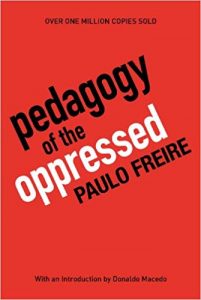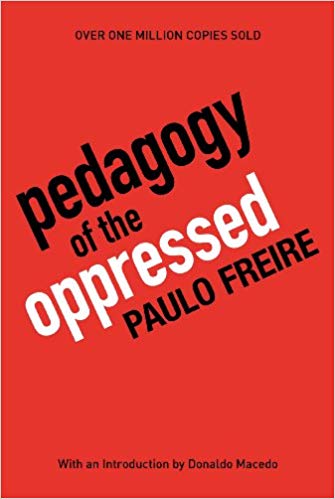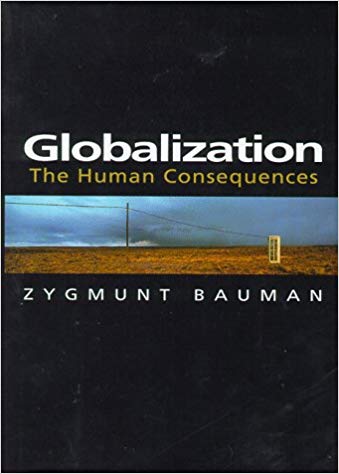I have often tried to explain my teaching methodology to my students, but have never provided them with a somewhat coherent written explanation of it. I believe my students, especially undergraduates, could learn better if they understood the underlining features of my classroom practices. This brief article, therefore, is an attempt at explaining my teaching practices.During my graduate education, I was trained by professors who specialized in critical pedagogy. Critical pedagogy claims its lineage to the work of Paulo Freire, famous for his book Pedagogy of the Oppressed.
Now, Freire himself rarely used the term “Critical pedagogy” in his book, but the process of education that he streamlines in the book has come to define an entire field of pedagogy called critical pedagogy. In his book Freire names the traditional method of teaching the Banking System of education. In this system, according to Freire, the students are considered empty vessels into which the teacher pours his or her knowledge. In such a process, the students have practically no say in their education and are often passive recipients of the “wisdom” and knowledge provided by the teacher. In critical pedagogy, the teacher hopes to inform his or her teaching by incorporating the student input and by encouraging students to have a say in their own education.
Why Critical Pedagogy?
Thus, in my classes, even though they can sometimes be lecture heavy, the students are always encouraged to suggest a better way of tackling a subject. To answer the question “Why Critical pedagogy,” one first has to know the purpose of education. If education for you, especially humanistic education, is meant to offer not only literal knowledge but also a humane, compassionate, and inclusive worldview, then critical pedagogy is the only way of teaching this way of living, for the students will not only learn the class materials but also learn, it is hoped, a way of living responsibly in the world, especially when it comes to their relations with their less fortunate local and global others. But this leads to yet another question: Does critical pedagogy work with privileged students?
This is an apt question. We know that the students in our classes who come from an “oppressed” class/ group would sympathize with a mode of teaching that encourages them to think of their local and global others, but would the students who do not come from any such marginalized class not feel threatened in such a classroom? And if they do feel threatened, would they not also become defensive or, at worst, belligerent? In my experience, most students are open to critical pedagogy if they know that their views and opinions are respected and that they have a right to their opinions in class. Thus, in my classes I ensure that I encourage open discussion and also develop a sense of mutual respect. I also use Mark Bracher’s research on how to use critical pedagogy more effectively without bringing my students’ identity perception into crisis. In his book Radical Pedagogy, Bracher explains that the most important aspect of human existence is our need to safeguard our identity. Thus, to put it succinctly, if our students feel threatened by our ideas and if they see them as a threat to their identities, they will completely shut us off. In order to reach most of my students, I ensure that at no point in my classes do they feel like having been put upon or having been considered less intelligent or not in possession of the “right” kind of politics. Freire, Tagg and so many others inform my teaching methodology.
What are the Learning Paradigm and the Teaching Paradigm?
Furthermore, I also rely on the latest research in pedagogical methodologies. For example, I believe that learning is a process and cannot really be reduced to a semester timeframe. Thus, the emphasis in my classes is not on coverage (the model in which the teacher forces students to cover all the texts in the syllabus) but learning, which means that I sometimes spend more time than planned on a certain subject, especially if I notice that the students might need a few more class sessions on the topic. By far the best book on this subject is John Tagg’s The Learning Paradigm College. In this book Tagg clearly distinguishes between the teaching paradigm and the learning paradigm. In his opinion, the teaching paradigm focuses on coverage and the teacher is supposed to cover all the knowledge in the syllabus, whereas in the learning paradigm the teacher focuses more on learning and less on coverage and in this way the students become participants in their own education. If one follows the learning paradigm, then one would rather spend more time on one topic rather than rushing through to cover all topics.
So, I have incorporated elements of both Freire and Tagg in my teaching practices: I try to make sure that the students have the freedom to express themselves without any fear of reprisals and that they can also suggest how best a certain subject should be discussed in class and, furthermore, I ensure that we do not sacrifice learning for the sake of mere coverage. Based on this brief article, here are some of the things my students may experience in my class:
- The books/ topics are covered in a chronological sequence per week, but there are no dates on the syllabus. Instead I use week 1, week 2 etc. [Of course the assignments and tests do have a date and it is announced in the class]. What this means is that as we discuss a certain topic or text, if the students feel that there is more to learn about that text, then we stay a little longer on it instead of just rushing through it.
- The students can also vote to change the format of any class assignment: for example, they can vote to turn in journals instead of the weekly quizzes. The only condition is that they have to prove to me that what they are proposing would be more effective for their learning.
- The students are encouraged to be polite and respectful to each other and I also make it a point to respect my students.
- Since I am teaching them to be kind and generous to others, in my classroom practices and even after class hours I try to display these qualities in my conduct: I try to be generous with my time, and try to give my students as much help as they need.
So, overall my classes might not be deeply structured and if a student only relies on the syllabus, they might feel lost but if they come to class regularly, they know where we are in the course. In my teaching methodology, I make it a point to announce at the end of each class as to what we will be discussing in the next class. I also encourage my students to ask their classmates about what is planned for the next class, if they had missed class or they always have the option of emailing me about it. Overall, teaching to me is a constant practice of learning to be a more effective, compassionate, and generous teacher and I welcome any suggestions that you might have in helping me improve my teaching.
(Read my views on Critical Pedagogy in Urdu HERE)





[…] have previously discussed some of my teaching practices. Most of those practices are informed by my reading of John Tagg and, of course, Freire. For anyone […]
[…] to the purity of one’s faith. No amount of uninformed education can alter this worldview. Only an informed education that slowly displaces this exclusivist narrative with a more inclusive narrative has some hope of […]
Brilliant